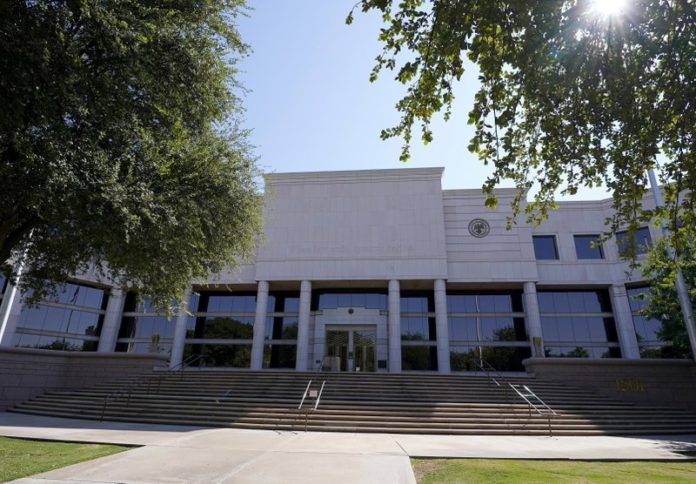
The Arizona Supreme Court on Thursday agreed to hear an expedited challenge to a new voter-approved tax on high-earning Arizonans designed to boost school funding.
The unusual action by the high court comes a month after a trial court judge refused to temporarily block Proposition 208 from taking effect. He rejected three separate constitutional challenges brought by opponents, who include the Republican leaders of the Legislature. Earlier, he had rejected a fourth challenge.
The high court was urged to immediately take the case and sidestep the normal course where the lower court judge would hold a trial. Republican Gov. Doug Ducey joined that request.
The Supreme Court set an expedited briefing schedule and set arguments for April 20.
The challengers are represented by attorneys with the Goldwater Institute, who praised the court for accepting the case.
“Today’s order shows that the Supreme Court understands how important these constitutional challenges are,” Goldwater attorney Timothy Sandefur said in a statement. “Rather than having the case go through the slower procedures for appeals, the Court announced that it will hear the case right away.”
Challengers raised several constitutional challenges. They include an argument that the measure needed a two-thirds vote to pass, as do tax increases enacted by the Legislature.
Another challenge questioned whether the new tax money, funneled through a special fund doled out to schools to pay for increased teacher and other pay, would put schools over a legal spending limit. They also said the measure does not have its own funding source to cover implementation costs, as the constitution requires, and that a provision that bars lawmakers from using the new tax to replace other school funding was illegal.
Maricopa County Superior Court Judge John Hannah Jr. rejected all of these arguments, finding it was unlikely that opponents of Proposition 208 would prevail and refusing to temporarily block collection of the tax.
Proposition 208, which voters passed in November, imposes a 3.5% tax surcharge on income above $250,000 for individuals or above $500,000 for couples. Supporters say it could raise about $940 million a year for schools, although the Legislature’s budget analysts estimate it will bring in $827 million a year.
The measure was an outgrowth of a 2018 teacher strike that resulted in educators getting a 20% pay raise over three years. But the state did not meet their other demands.
The attorney representing Invest in Education, the grassroots committee that got the measure on the ballot, wasn’t immediately available for comment.
The Supreme Court is well versed in Proposition 208 and opponents’ efforts to prevent it from becoming law. In August, the court rejected a lower court ruling keeping the measure from going before voters.
The lower court had agreed with opponents that the 100-word summary on petitions voters signed inaccurately described the measure. It also found that a bonus system the petition company used to award some circulators violated a law that bans paying them per signature.
Chief Justice Robert Brutinel wrote for the unanimous court that the trial court judge was wrong.
Republished with the permission of the Associated Press.













